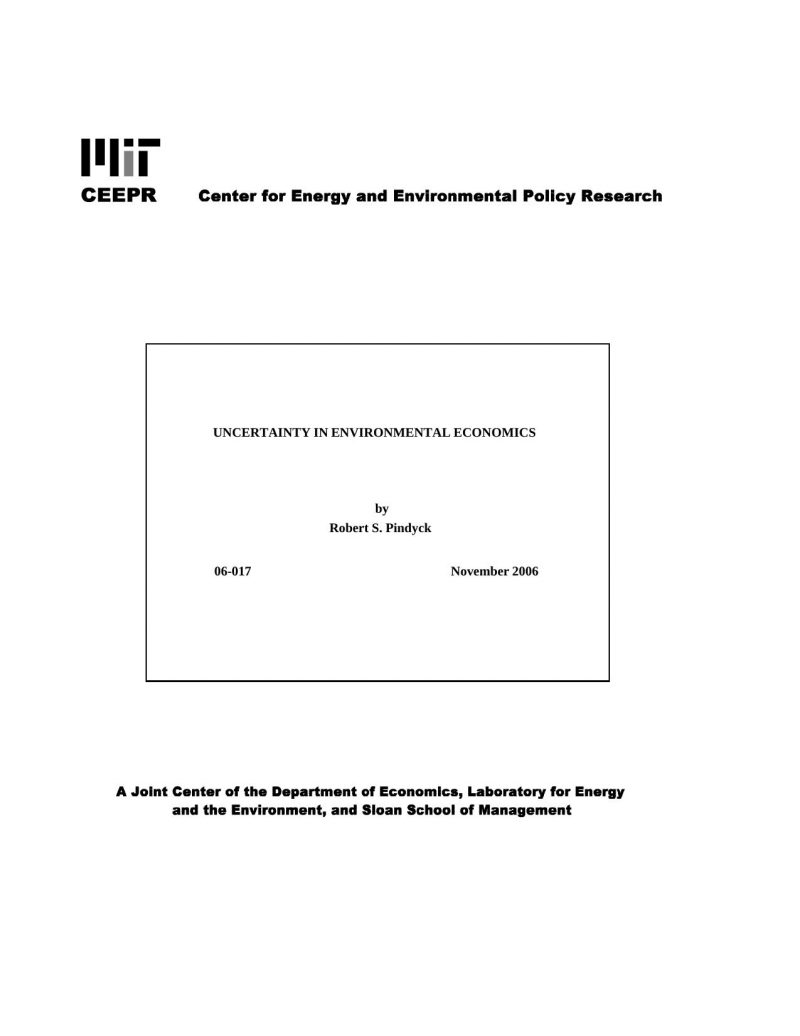Uncertainty in Environmental Economics
Robert S. Pindyck
06-Nov
In a world of certainty, the design of environmental policy is relatively straightforward, and boils down to maximizing the present value of the flow of social benefits minus costs. But the real world is one of considerable uncertainty – over the physical and ecological impact of pollution, over the economic costs and benefits of reducing it, and over the discount rates that should be used to compute present values. The implications of uncertainty are complicated by the fact that most environmental policy problems involve highly nonlinear damage functions, important irreversibilities, and long time horizons. Correctly incorporating uncertainty in policy design is therefore one of the more interesting and important research areas in environmental economics. This paper offers no easy formulas or solutions for treating uncertainty – to my knowledge, none exist. Instead, I try to clarify the ways in which various kinds of uncertainties will affect optimal policy design, and summarize what we know and don’t know about the problem.



